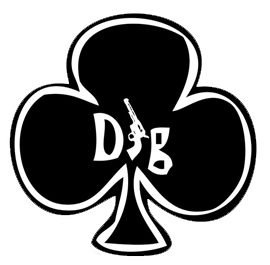The Shrine of Dig represents music that has made indelible impressions on our lives, both musically and personally. We plan to enshrine works and artists that stand out for any number of special reasons, from those glorious moments we first heard something captivating and new, through the continuous impacts of the music upon our lives. The induction ceremony involves multiple posts where we will both explore and pay tribute to the words and sounds which have been so important to us. In doing so, we share with you some music we believe is damn near infallible and absolutely worth listening to. View all

Listening to Charles Mingus is my definition of a cathartic experience. I can name only a few artists whose music can cut to the core of me in the same way that his does. It is an earthy, roots-based, bawdy expression of life's emotional range – rapture, euphoria, despair, contemplation, anger, indignation, desire, and on and on.
Charles Mingus: Moanin'
It's not just the melodies and harmonies that accomplish this, it's the human element of performance personality that solidifies these ideas. It is the musical gestures and shapes. It is the way his musicians embraced production noise as a tool of expression. It is the way the community of performers in the band didn't hold back if they felt compelled to yell, or sing, or vocalize in any capacity during a set. It is an expression of life. Sometimes it is sloppy, seemingly disorganized, and even cacophonous, but Mingus's pen had a direct line to his soul, and his musicians performed with every ounce of vim and vigor they could muster.
In 1959 Charles Mingus released one of his most seminal albums, Blues and Roots. Here the Mingus band boasts a cast of nine who often perform intermingling lines that overlap and intersect in zealous, sometimes combative ways. His reed players make the saxophones rumble, scream, and squeal as they anchor the groove or take off on an impassioned solo. Every time I come back to this album I find something new that knocks me flat. Today I was run over by the album's third cut Moanin'.
The opening baritone phrase is a magnificent display of character and cool. As the band swells through the opening crescendo I'm just as moved to yell as the band members are and do. This track is a back-to-basics, thick, swinging exemplar of Charles Mingus's full roots in jazz history. The aesthetic of multiple and overlapping lines is borrowed from Dixieland, and the straight up blues/gospel form is both simple and loose enough to allow his musicians full freedom and range of expression, but also keeps the audience in a familiar musical pocket. This album is an absolute must for any jazz collection. You dig?

